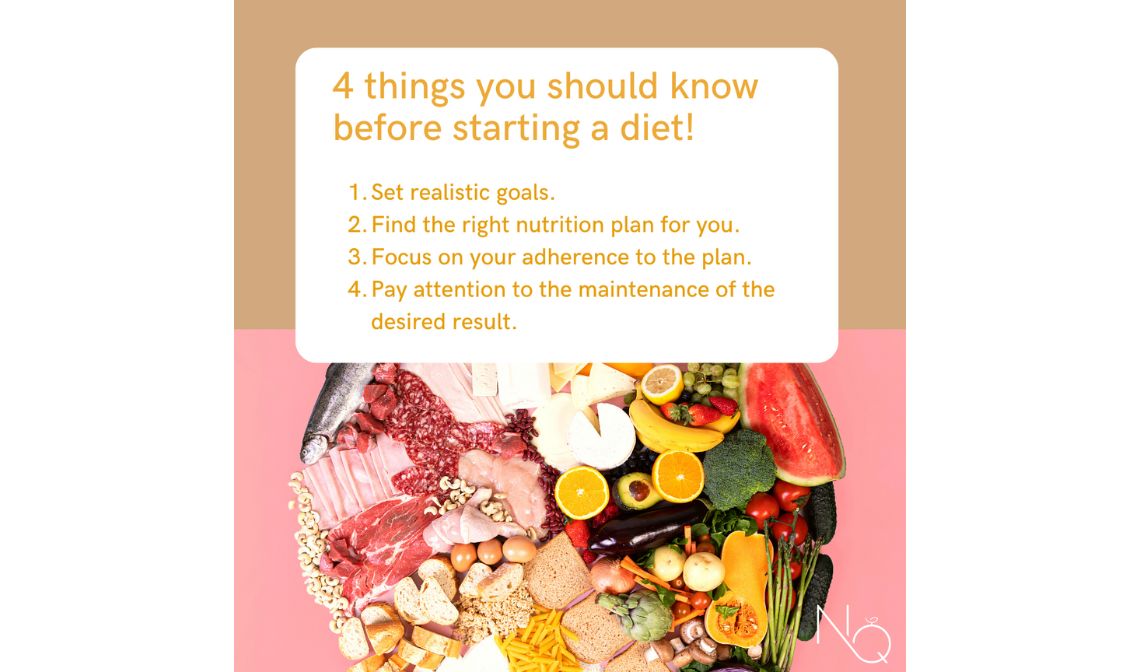Four things that every person who starts a new effort in their diet should know.
1. Realistic Goals: Realistic goals are probably the most significant issue to define when deciding to start a new diet endeavor. Many people make the mistake of setting a big goal in the first place and sticking to it. However, this goal might not be achievable or could be achieved only through intermediate goals or simultaneous goals or comes after another goal.
For instance, your realistic goal might be to lose 10 kilos in 4 months.
2. Proper plan: Once the goals get set, what is the best way to achieve them? The strategy we choose to follow should fit your character, and habits, be as familiar as possible, and positively affect goal 3.
In continuation of the above example, instead of a low-calorie diet plan, we focus on nutritional counseling and achieve weight loss as a side effect of restoring the relationship with nutrition.
3. Αdherence: Adherence is 'the extent to which a person's behavior - following a diet or executing lifestyle changes - corresponds with agreed recommendations from a health care provider' according to WHO. More simply, "how well you follow the plan we set"! It depends on the plan, your strength and persistence to stick to it, and our relationship.
For example, you've learned how to control the stimuli, and when you get an afternoon craving, you manage to get over it and move on. If this occurs, it doesn't stop you, and you continue concentrating on your goal.
4. Maintenance: The NQ philosophy supports that our diet is not individually repeated attempts to achieve a nutrition goal, but a continuous process of growth, self-improvement, and getting to know ourselves and our diet. Thus, with the end of an intervention, it is vital not to forget the part of the maintenance of the desired result since our relationship with nutrition does not last six months but a whole life. For example, we will arrange an appointment after a set time to take anthropometric measurements and see how you are doing with the new condition in your diet. I will telephone you to hear from you. If you need help, you will not hesitate to contact me.
What disappoints me about "diet" is the frustration that accompanies it. It has to do with the 4 points I mentioned above, which are not taken into account often. Let's demythologize nutrition and make it part of us just as it is. Our diet is not - and should not be - something foreign to us.




